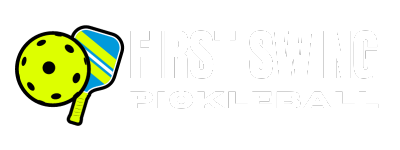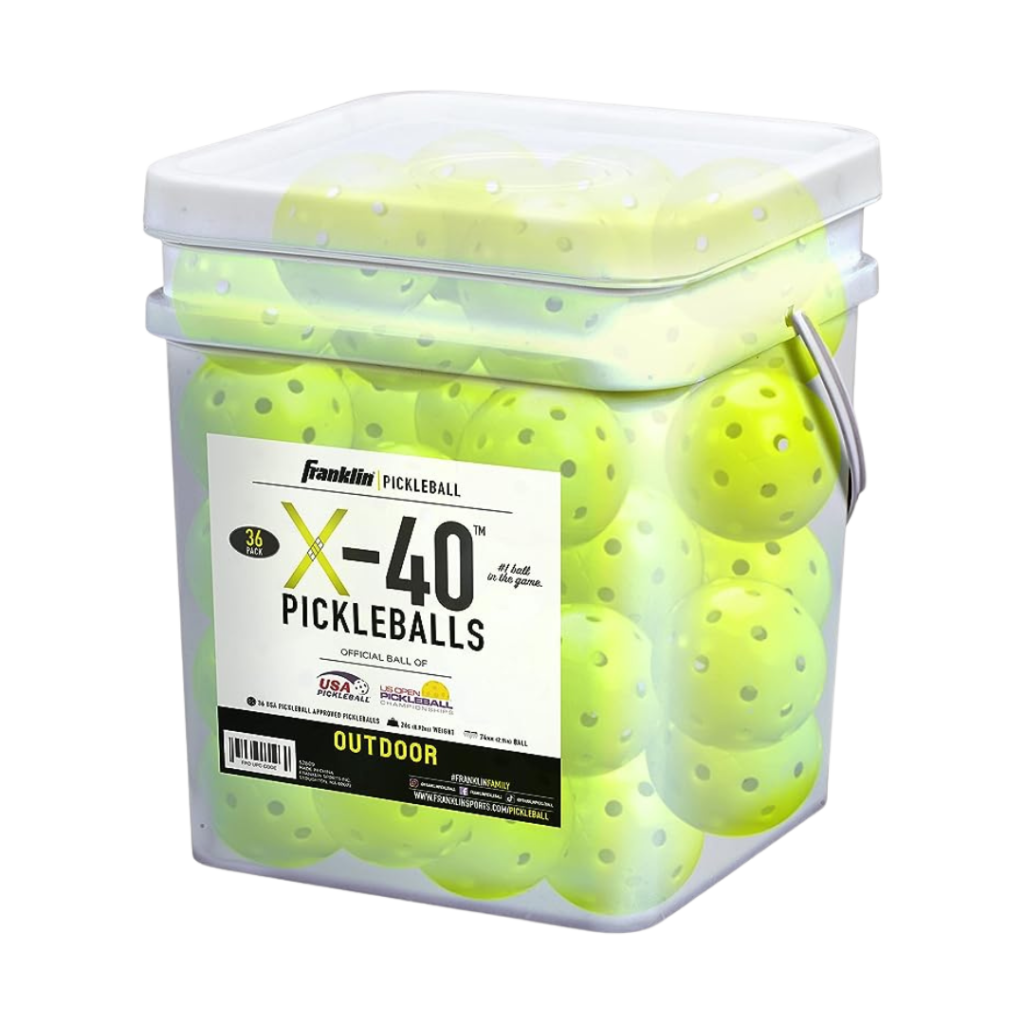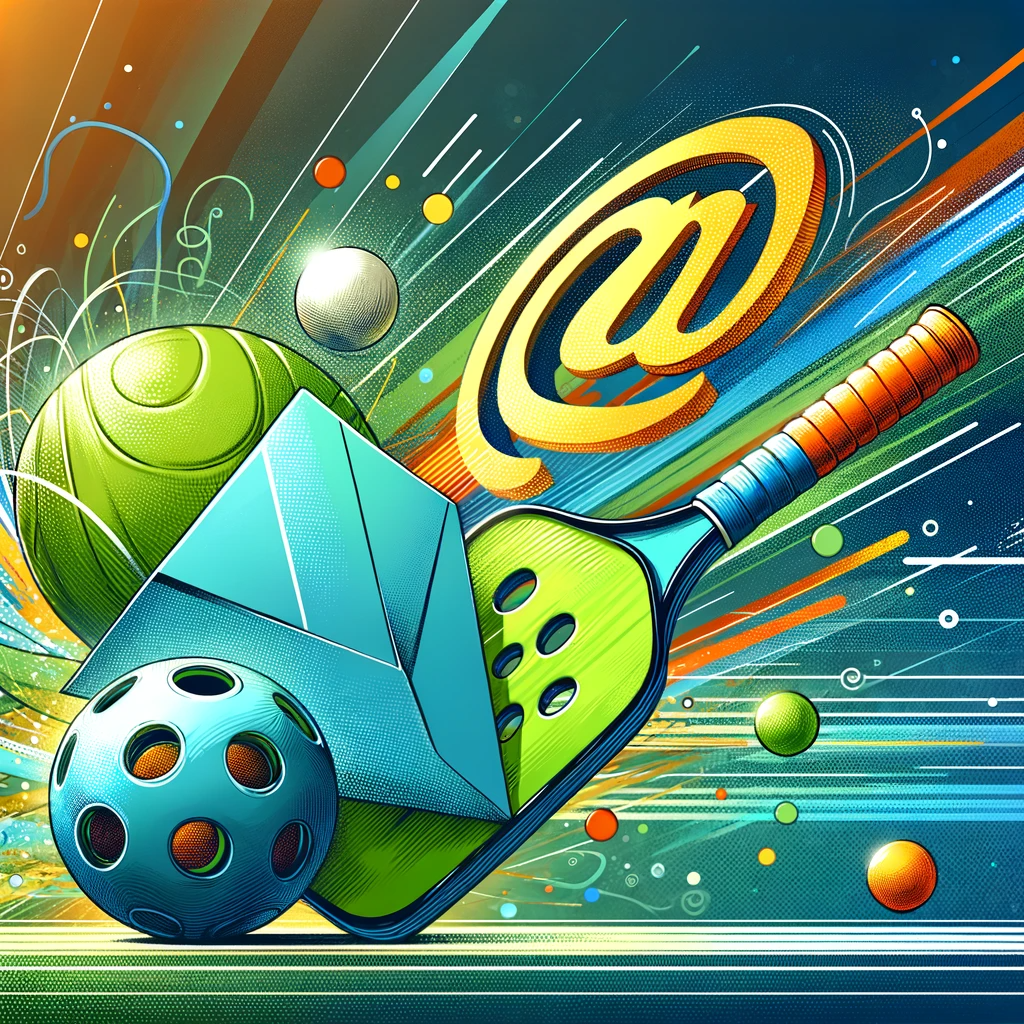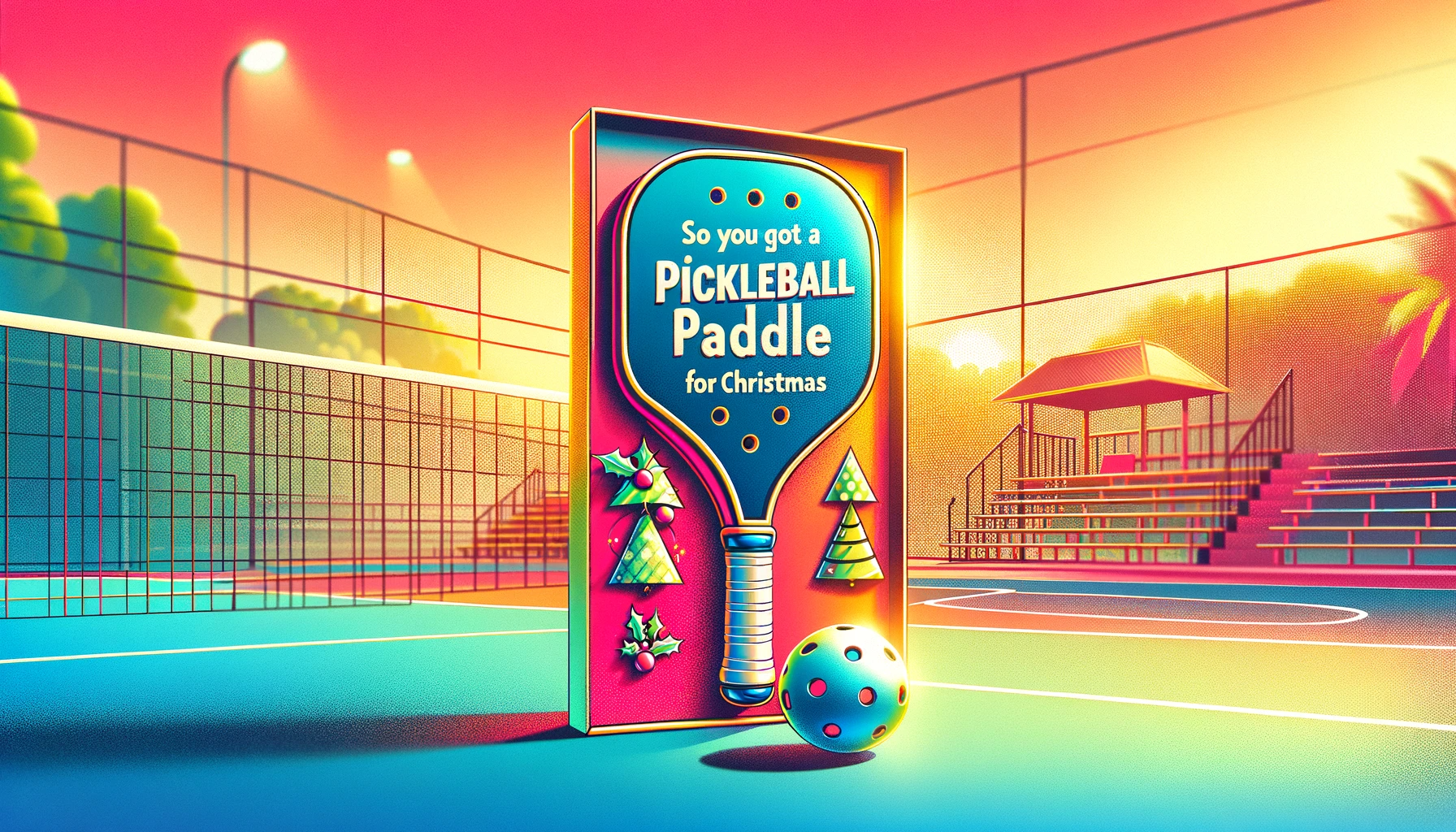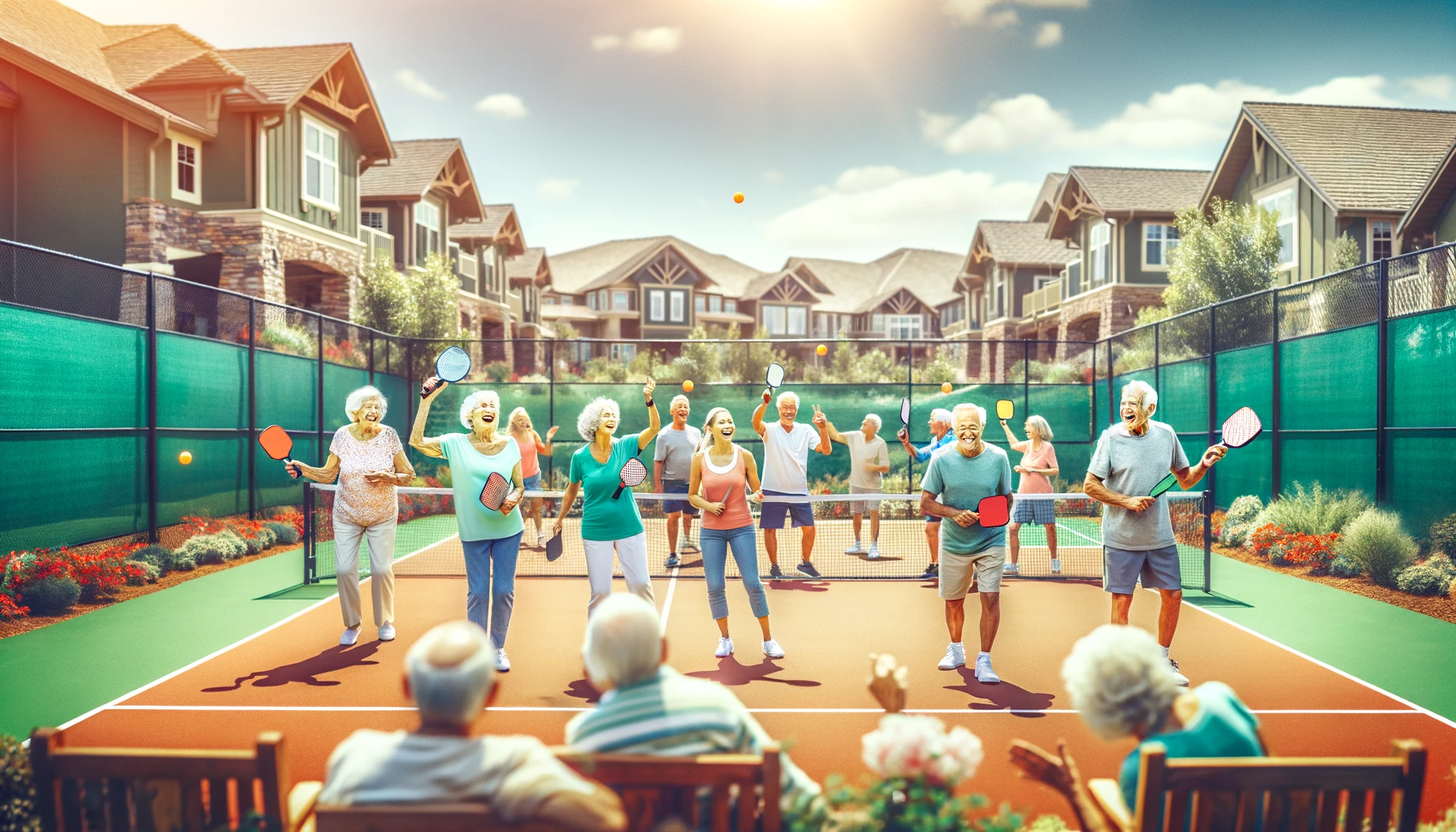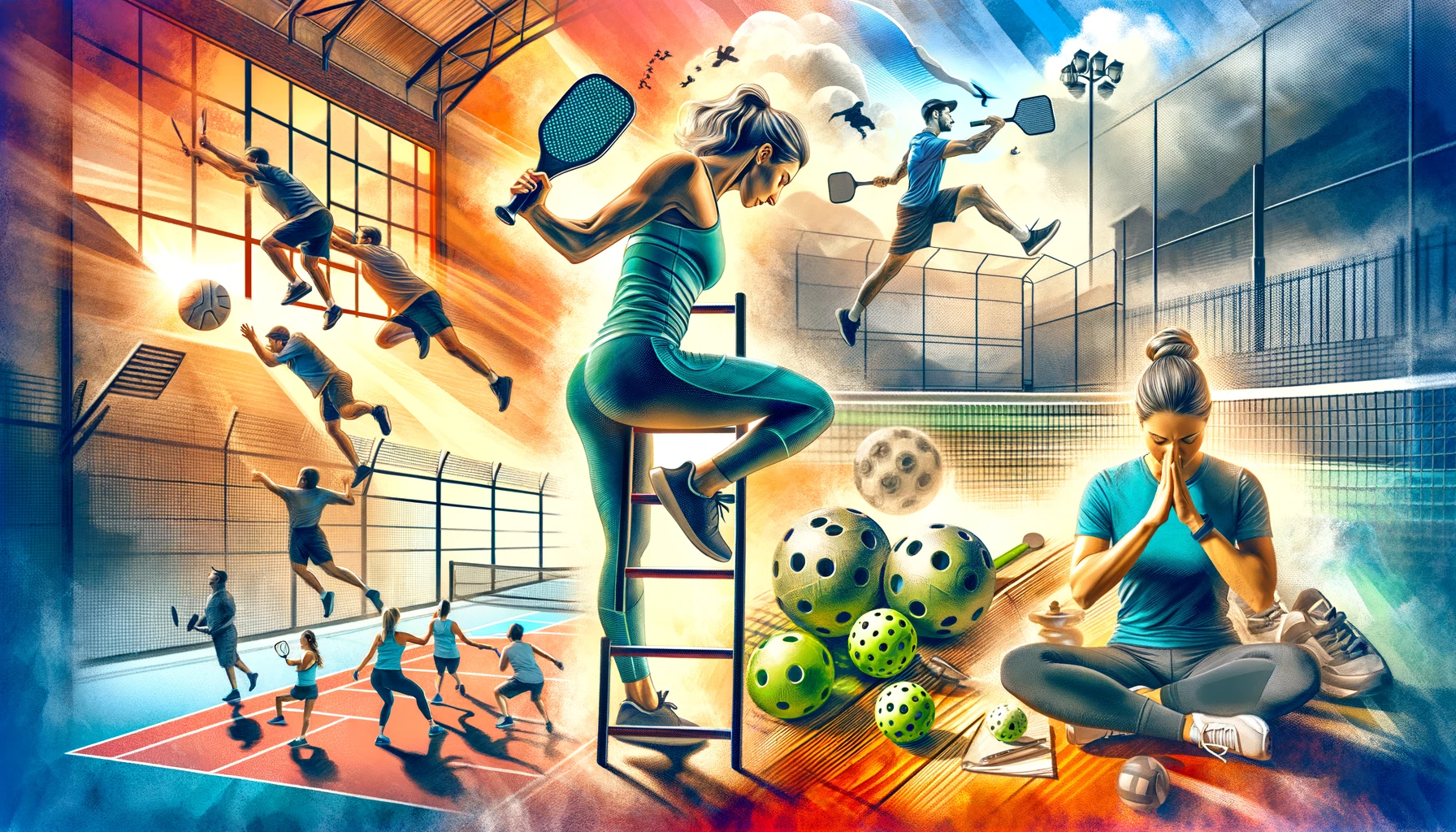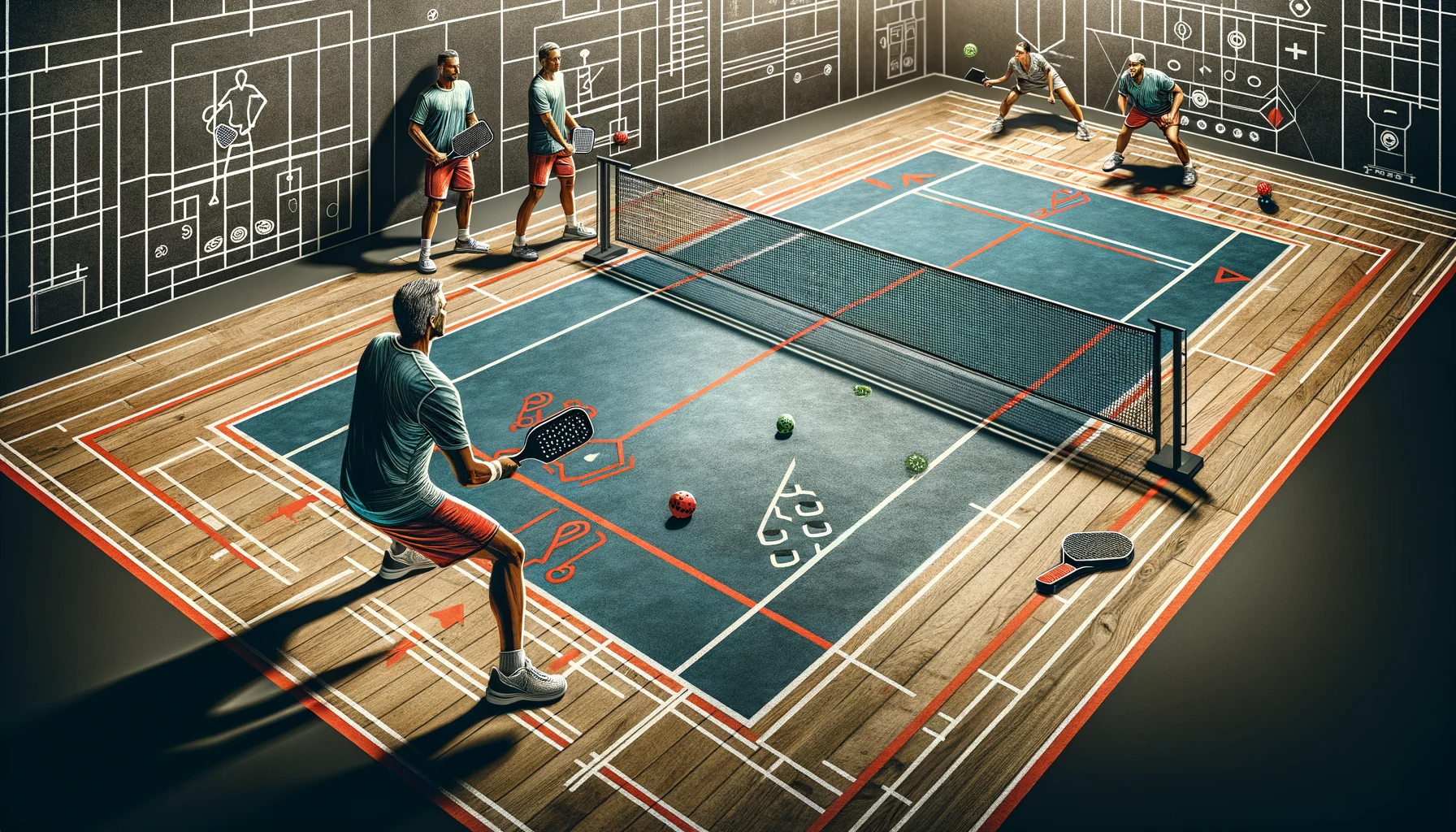
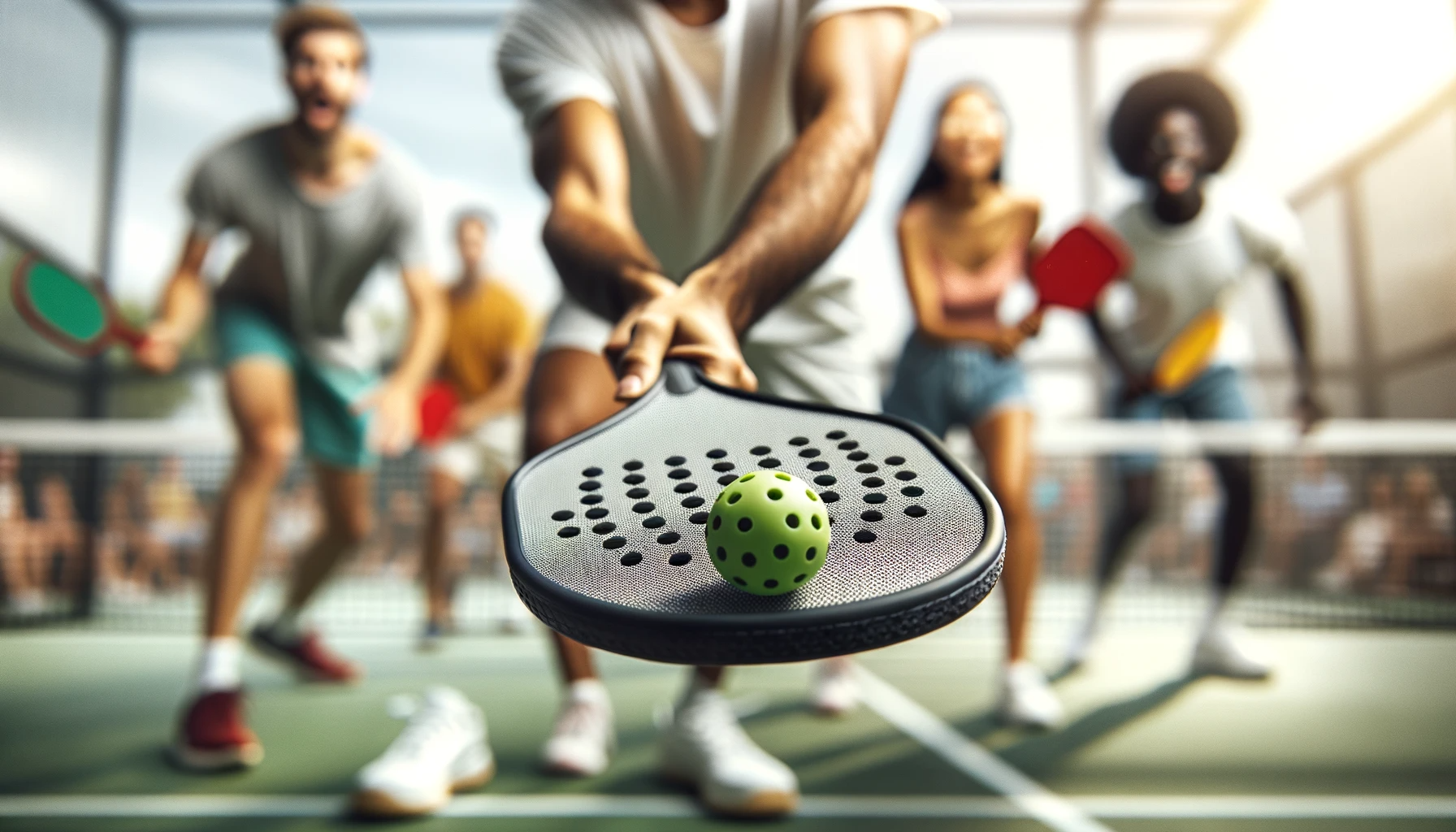
Pickleball Etiquette: Dos and Don’ts
Pickleball is a popular sport that combines elements of tennis, badminton, and table tennis. As with any sport, there are certain rules and etiquette that players should follow to ensure a fair and enjoyable game for all. In this guide, we will discuss the dos and don'ts of pickleball etiquette, covering everything from court behavior to equipment usage. By following these guidelines, players can create a positive and respectful environment on the court for themselves and their opponents. So whether you're a seasoned player or new to the game, read on to learn about the proper etiquette for playing pickleball.
Do's of Serving
First and foremost, let's talk about the importance of a proper serve in pickleball. The serve is the starting point of every game and can set the tone for the rest of the match. A good serve can give you an advantage, while a bad serve can put you at a disadvantage. So, it's crucial to know the do's of serving in pickleball.
The first do of serving in pickleball is to always serve underhand. Unlike tennis, where players serve overhand, pickleball requires players to serve underhand. This rule is in place to prevent players from using too much power and to keep the ball low and in play. So, make sure to keep your serve underhand to avoid any penalties.
Another important do of serving in pickleball is to serve diagonally. In pickleball, the serve must be hit diagonally to the opposite court. This rule ensures that both teams have an equal chance to return the serve and keeps the game fair. So, make sure to aim your serve towards the opposite diagonal court.
Now, let's talk about some tips for proper etiquette when serving in pickleball. The first tip is to always wait for the receiver's signal before serving. In pickleball, the receiver must give a clear signal that they are ready to receive the serve. This can be done by raising their paddle or saying "ready." As the server, it's your responsibility to wait for this signal before serving. This ensures that the receiver is prepared and ready to return the serve.
Another important tip is to avoid foot faults. A foot fault occurs when the server steps on or over the baseline while serving. This is a common mistake, especially for beginners, but it's important to avoid it. To prevent foot faults, make sure to stand behind the baseline and not step on or over it while serving.
In addition to these tips, it's also important to be mindful of your surroundings when serving. Make sure to check your surroundings before serving to avoid hitting anyone or anything with the ball. If you accidentally hit someone or something, apologize and take a moment to make sure everyone is okay before continuing the game.
Lastly, it's important to have good sportsmanship when serving in pickleball. This means being respectful to your opponents and following the rules of the game. Avoid trash-talking or showing off after a good serve. Instead, focus on playing your best and having a good time with your fellow players.
Don'ts of Dinking
When dinking, it is crucial to remember that the goal is to keep the ball low and close to the net, not to hit it with power. Hitting the ball too hard can result in the ball going out of bounds or bouncing too high, making it easier for your opponent to return. It can also be dangerous for players on the other side of the net, as a hard shot can cause injury if not properly controlled. So, remember to keep your dinks soft and controlled to avoid these issues.
Another mistake to avoid in dinking is hitting the ball too high. As mentioned earlier, the goal of dinking is to keep the ball low and close to the net. Hitting the ball too high can give your opponent an advantage, as they can easily smash the ball back at you. It can also result in a fault if the ball goes out of bounds. So, make sure to keep your dinks low and within the boundaries of the court.
In addition to hitting the ball too hard or too high, another common mistake in dinking is not being patient. Dinking requires patience and precision, as it is a delicate shot that requires finesse. Rushing your dinks or trying to force a shot can result in errors and give your opponent an advantage. So, take your time and focus on making a controlled and accurate shot.
Furthermore, it is essential to avoid reaching over the net when dinking. In pickleball, players are not allowed to reach over the net to hit the ball, as it can result in a fault. This rule is in place to prevent players from interfering with their opponent's shot. So, make sure to keep your hands and paddle on your side of the net when dinking.
Lastly, it is crucial to avoid arguing or getting into conflicts with your opponent while dinking. Dinking is a crucial part of the game, and it is essential to maintain good sportsmanship and etiquette on the court. If you feel that your opponent is not following the rules or is making mistakes, it is best to address it calmly and respectfully. Getting into arguments or conflicts can ruin the fun and friendly atmosphere of the game.
Respectfully Share the Court
It is important to remember that pickleball is a social sport. It is meant to be enjoyed with others, and therefore, it is crucial to show respect and consideration towards your fellow players. This starts with arriving on time for your scheduled game. If you are running late, make sure to communicate with your partner or opponents so they are aware of the delay. This shows that you value their time and are considerate of their schedule.
Once you are on the court, it is important to be aware of your surroundings and the other players on the court. Pickleball is a fast-paced game, and collisions can happen if players are not paying attention. Make sure to call out "ball on" or "coming in" when a ball is heading towards you or your partner. This will alert the other players to be cautious and avoid any potential accidents.
Another important aspect of court courtesy is to avoid unnecessary noise and distractions. This includes talking loudly, using your phone, or making excessive grunting noises. These distractions can disrupt the concentration of other players and can be considered disrespectful. If you need to take a break or make a phone call, step off the court to do so.
When it comes to serving, it is important to follow the proper etiquette. The server should always announce the score before each serve, and the receiver should wait until the server is ready before returning the ball. It is also considered good sportsmanship to give your opponents a chance to warm up their serves before the game begins. This shows respect for their skills and allows for a fair game.
During the game, it is important to be mindful of your body language and reactions. If you make a mistake or miss a shot, avoid showing frustration or anger. This can be seen as disrespectful towards your partner or opponents. Instead, stay positive and focus on the next point. On the other hand, if your opponent makes a great shot, it is considered good sportsmanship to acknowledge and compliment them on their skill.
As the game progresses, it is important to be aware of the score and to keep track of it accurately. This is not only important for the game but also shows respect for your opponents. If there is a disagreement about the score, it is best to calmly discuss it and come to a resolution rather than arguing or getting upset.
Finally, when the game is over, it is important to shake hands with your opponents and thank them for the game. This is a simple gesture that shows good sportsmanship and respect for your fellow players. If you are playing in a tournament, it is also customary to congratulate the winning team and wish them luck in their future games.
Etiquette for Keeping Track of Points
Calling the score may seem like a simple task, but it is crucial in pickleball. Not only does it keep track of the points, but it also shows respect to your opponents and helps maintain the flow of the game. So, let's dive into the dos and don'ts of calling the score in pickleball.
First and foremost, it is essential to always call the score before each serve. This is a basic rule that every player should follow. By announcing the score, you are not only reminding yourself of the current score, but you are also informing your opponents. This helps avoid any confusion or disputes during the game. Plus, it shows that you are a respectful and fair player.
Another important aspect of calling the score is to do it clearly and loudly. In the heat of the game, it can be easy to mumble or say the score too quietly. This can lead to misunderstandings and disrupt the flow of the game. So, make sure to speak up and enunciate the score clearly for everyone to hear. This is especially important if you are playing in a noisy or crowded environment.
In addition to calling the score before each serve, it is also crucial to announce the score after each point. This is especially important when playing doubles, as it helps your partner keep track of the score. It also shows that you are a team player and are actively involved in the game. Plus, it can prevent any confusion or arguments about the score.
Now, let's talk about some don'ts when it comes to calling the score. One of the biggest mistakes that players make is calling the score incorrectly. This can happen when a player forgets to announce the score after a point or accidentally says the wrong score. While it may seem like a small mistake, it can lead to frustration and arguments among players. So, always double-check the score before announcing it to avoid any misunderstandings.
Another don't when it comes to calling the score is talking during the game. Pickleball is a fast-paced sport, and it is essential to maintain focus and concentration during the game. Talking or making unnecessary noise can be distracting for both you and your opponents. So, save the chit-chat for after the game and focus on the score and your gameplay during the match.
Lastly, it is important to remember that calling the score is not just about keeping track of points. It is also a way to show respect and sportsmanship towards your opponents. So, always be courteous and polite when announcing the score. Avoid gloating or making snide remarks, even if you are winning. Remember, pickleball is a game, and the most important thing is to have fun and enjoy the sport.
In conclusion, calling the score is an essential aspect of pickleball etiquette. It helps keep track of points, avoids confusion, and shows respect towards your opponents. So, make sure to always announce the score before each serve, do it clearly and loudly, and double-check for accuracy. And remember, the most important thing is to have fun and be a good sport while playing pickleball. Happy playing!
Avoiding Accidents and Injuries
First and foremost, it is important to always be aware of your surroundings while playing pickleball. This means paying attention to where your opponents are and where the ball is at all times. It can be easy to get caught up in the game and lose track of your surroundings, but this can lead to accidents and injuries. So, make sure to always keep your eyes on the ball and your opponents to avoid any collisions.
Another important aspect of pickleball etiquette is respecting the court and its boundaries. This means not stepping on the lines or going beyond the designated playing area. It is also important to avoid hitting the ball too hard, as this can cause damage to the court or surrounding areas. Remember, pickleball is a game of finesse and control, not power.
When it comes to serving, there are a few dos and don'ts to keep in mind. First, make sure to serve from behind the baseline. Stepping over the line while serving is not only against the rules, but it can also be dangerous for other players. Additionally, do not serve until your opponents are ready and have signaled that they are ready to receive the serve. This helps to prevent any surprise shots that could lead to accidents.
In pickleball, there is a "no volley zone" or "kitchen" area near the net where players are not allowed to hit the ball. This is to prevent players from getting hit with a fast-moving ball at close range. It is important to respect this rule and not hit the ball from within the kitchen. However, it is also important to not linger in the kitchen after hitting a shot. This can be seen as a hindrance to the opposing team and can lead to conflicts on the court.
Communication is key in any sport, and pickleball is no exception. It is important to communicate with your partner and opponents during the game. This can include calling out the score, letting your partner know when you are going for a shot, and apologizing if you accidentally hit someone with the ball. Good communication can prevent misunderstandings and conflicts on the court.
In the event of a dispute or disagreement on the court, it is important to handle it calmly and respectfully. Avoid getting into arguments or confrontations with other players. Instead, try to resolve the issue calmly and if necessary, involve a referee or mediator. Remember, pickleball is a game and it should be enjoyed by all players.
Lastly, it is important to clean up after yourself when you are finished playing. This means picking up any trash or equipment that you brought onto the court. It also means leaving the court in the same condition as you found it. This not only shows respect for the court and its owners, but it also helps to keep the court safe and free of any hazards.
Dos and Don'ts for Doubles Play
One of the key aspects of pickleball is playing in doubles, where two players are on each side of the court. This adds a whole new level of strategy and communication to the game. In order to have a successful and enjoyable doubles match, it is important to follow some basic etiquette rules. Here are some dos and don'ts for communicating with your partner in pickleball doubles play.
DO: Communicate with your partner before the game starts. Before the match begins, it is important to have a quick chat with your partner. This is the time to discuss your strengths and weaknesses, as well as any strategies you may want to use. It is also a good idea to establish a system for calling shots, so there is no confusion during the game.
DON'T: Criticize your partner during the game. It can be frustrating when your partner misses a shot or makes a mistake, but it is important to remember that everyone makes mistakes. Criticizing your partner during the game will only add tension and negativity to the match. Instead, offer words of encouragement and focus on the next point.
DO: Use positive and clear communication. In the heat of the game, it is easy to get caught up in the moment and forget to communicate with your partner. However, effective communication is key to a successful doubles match. Use positive and clear language to let your partner know where you are on the court and what shots you are going for. This will help avoid collisions and confusion.
DON'T: Yell or argue with your partner. Pickleball is a game, and it is meant to be fun. Yelling or arguing with your partner will only ruin the experience for both of you. If you have a disagreement, take a deep breath and calmly discuss it during a break or after the game. Remember, you are a team, and it is important to support each other.
DO: Be aware of your partner's position on the court. In pickleball, it is crucial to know where your partner is at all times. This will help you avoid hitting them with the ball or getting in their way. Pay attention to their movements and adjust your shots accordingly. This will also help you anticipate where your partner will be, making it easier to cover the court.
DON'T: Take all the shots. In doubles play, it is important to work together as a team. This means taking turns and not hogging all the shots. It can be tempting to want to hit every ball, but this can lead to confusion and frustration for your partner. Remember, it is a team effort, and both players should have a chance to contribute.
DO: Celebrate and support each other. When you and your partner make a great shot or win a point, celebrate together! This will not only boost your morale but also strengthen your teamwork. On the other hand, if you or your partner make a mistake, offer words of encouragement and support. This will help keep the energy positive and motivate you both to do better.
Proper Attire and Equipment
While pickleball is a casual sport, it is important to dress appropriately for the game. This means wearing comfortable and breathable clothing that allows for ease of movement. Avoid wearing anything too tight or restrictive, as it can hinder your ability to play. Also, keep in mind that pickleball is often played outdoors, so be sure to dress for the weather. If it's a hot day, wear light-colored and lightweight clothing to stay cool. On the other hand, if it's a chilly day, layer up to stay warm.
Another important aspect of proper attire in pickleball is wearing the right shoes. Pickleball is a game that involves a lot of quick movements and changes in direction, so it's crucial to wear shoes that provide good traction and support. Avoid wearing running shoes or sneakers with smooth soles, as they can cause you to slip and slide on the court. Instead, opt for court shoes or tennis shoes with non-marking soles. These types of shoes are specifically designed for sports that involve lateral movements and will help you stay stable and balanced on the court.
Now, let's talk about equipment. Pickleball is played with a paddle and a plastic ball with holes, similar to a wiffle ball. When it comes to paddles, it's important to use the right size and weight for your skill level. Paddles come in different sizes and weights, and it's essential to choose one that feels comfortable and easy to maneuver. If you're a beginner, it's best to start with a lighter paddle and gradually work your way up to a heavier one as you improve your skills.
In addition to the paddle, it's also crucial to use the right ball for the game. Pickleball balls come in different colors, with each color representing a different level of play. For recreational games, the most commonly used ball is the yellow one, which is suitable for all skill levels. However, if you're playing in a tournament or with more experienced players, you may want to use a white ball, which is faster and more challenging to play with.
When it comes to using equipment on the court, there are a few etiquette rules to keep in mind. First and foremost, always respect your opponent's equipment. Avoid stepping on or hitting their paddle or ball, as it can cause damage and disrupt the game. Also, be mindful of where you place your paddle when not in use. It's considered good etiquette to place it on the ground or on the side of the court, rather than leaving it on the net or in the middle of the court.
Lastly, always make sure to clean up after yourself. Pickleball courts are often shared with other players, so it's essential to leave the court in the same condition as you found it. This means picking up any trash or water bottles and wiping down any sweat or dirt from the court. It's also a good idea to bring a towel to wipe off your paddle and hands during breaks to avoid leaving any residue on the court.
Good Sportsmanship: How to Display Respect and Fair Play in Pickleball Matches
First and foremost, it is important to remember that pickleball is a social sport. It is a great way to meet new people and make friends while getting some exercise. With that in mind, it is crucial to always display good sportsmanship on the court. This means being respectful to your opponents, teammates, and the game itself.
One of the most important aspects of good sportsmanship in pickleball is to always be a gracious winner and loser. No one likes a sore loser or a gloating winner. If you win a point, don't rub it in your opponent's face. Instead, offer a friendly smile or a high-five. And if you lose a point, don't get angry or make excuses. Congratulate your opponent and move on to the next point. Remember, it's just a game, and the most important thing is to have fun.
Another important aspect of good sportsmanship is to always play fair. This means following the rules of the game and not trying to cheat or take advantage of your opponents. If you are unsure about a rule, don't be afraid to ask for clarification. And if you accidentally make a mistake, own up to it and offer your opponent the point. Playing fair not only shows respect for the game but also for your opponents.
In addition to playing fair, it is also important to be a good teammate. In pickleball, you are often playing with a partner, and it is crucial to communicate and work together effectively. This means being supportive and encouraging, even when mistakes are made. Remember, your partner is not your enemy, and blaming them for a loss will only create tension and negativity on the court. Instead, work together to improve and have a positive attitude.
Another aspect of good sportsmanship in pickleball is to be mindful of your surroundings. This includes being aware of other players on nearby courts and not disrupting their games. If a ball from your game rolls onto another court, wait for a break in play before retrieving it. And if you need to cross another court to get to your own, make sure to wait until the players have finished their point before crossing.
In addition to being mindful of other players, it is also important to take care of the court and equipment. Pickleball courts are often shared with other sports, so make sure to clean up after yourself and your teammates. This means picking up any trash or water bottles and wiping down the court if it gets dirty. It is also important to take care of the equipment, such as paddles and balls, and not intentionally damage them.
Lastly, it is important to remember that pickleball is a game and should be enjoyed by all. This means not taking it too seriously and having a sense of humor. If you make a mistake or your opponent makes a great shot, don't be afraid to laugh it off and move on. And if you are playing with friends, don't be afraid to joke around and have fun. After all, that's what pickleball is all about – having a good time with good people.
Conclusion
In conclusion, pickleball etiquette is an important aspect of the game that should be followed by all players. Some key dos include respecting your opponents, communicating effectively, and being a good sport. On the other hand, some important don'ts include avoiding distractions, not stepping into your opponent's court, and refraining from arguing with the referee. By following these dos and don'ts, players can ensure a fair and enjoyable game for all involved. It is also important to remember that pickleball is a social sport, and practicing good etiquette can help foster a positive and friendly atmosphere on the court. So, let's all strive to be good pickleball players by following proper etiquette.
